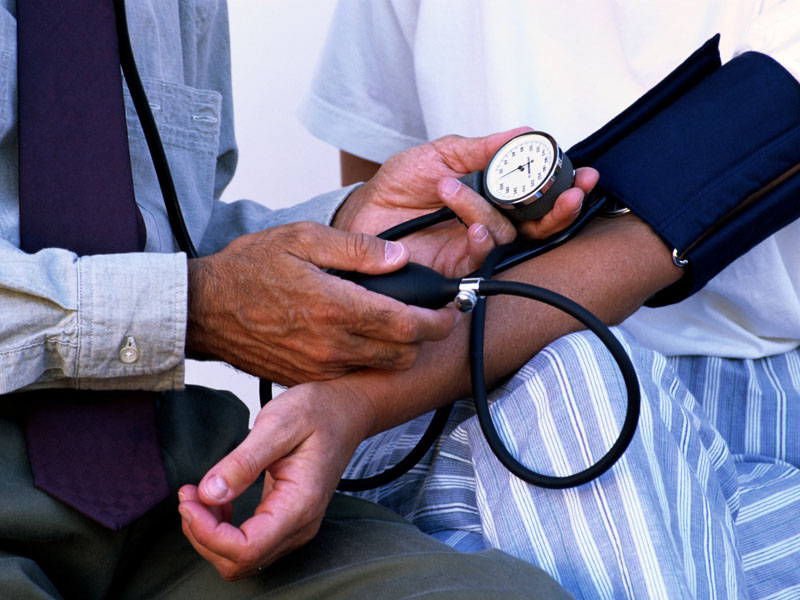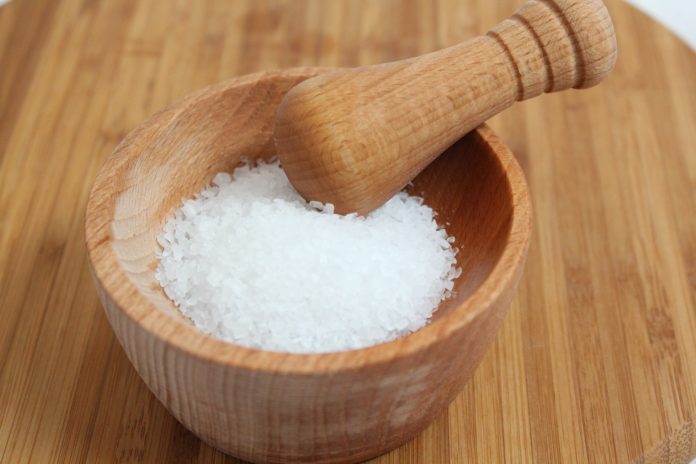A new study debunks the myth that vitamins and minerals in fruits and vegetables can offset the effect of high salt intake
If your hand veers towards the salt shaker at every meal, then you may be a sitting duck for high blood pressure, no matter how healthy that meal may otherwise be.
New research by scientists at a number of institutions, including Imperial College London and Northwestern University, analysed the diets of over 4,000 people and found that the effects of high salt intake cannot be nullified by the quality of diet. The results, published in the journal Hypertension, showed that people eating higher amounts of salt had higher blood pressure – no matter how healthy a person’s overall diet.
Blood pressure is measured in two numbers – the first, called systolic pressure, measures the force the heart pumps blood around the body. The second number, called diastolic pressure, is the resistance to blood flow in the arteries
The scientists behind the research are now advising people to monitor their salt intake – and for food manufacturers to lower the salt content in their products. Some of the high salt foods that are regularly consumed include chips, pickles, salted nuts, canned meat or fish. A 2014 analysis published in the Journal of Hypertension put the overall incidence of hypertension in India at about 29.8%.
Blood pressure is measured in two numbers – the first, called systolic pressure, measures the force the heart pumps blood around the body. The second number, called diastolic pressure, is the resistance to blood flow in the arteries. Ideally, blood pressure should be between 90/60 and 120/80 mmHg.
High blood pressure increases the risk of a number of conditions including heart attacks and stroke. It’s thought to have a number of causes, including age, weight and eating too much salt. Vitamins and minerals in fruit and vegetables are speculated to, in some way affect blood vessels, enabling them to lower blood pressure.

Previously, experts believed that eating high amounts of fruit and vegetables might help counteract the effect of high salt on blood pressure. However while these foods do tend to lower blood pressure, the new research suggests they do not counteract the adverse influence of salt intake.
In the paper, the team studied data from the INTERMAP study. In this study, which was conducted between 1997-1999, scientists tracked the diets of 4,680 people, aged 40-59, from the USA, UK, Japan and China. The volunteers were tracked over four days, and two urine samples were taken during this time. Measurements of height, weight and blood pressure were also taken. The study data has since been used for numerous research projects.
They assessed concentrations of sodium and potassium in the urine samples. Sodium is the main component of salt, while potassium, which is found in green leafy vegetables, has been linked to lower blood pressure. The team also used dietary data to assess the volunteers’ intake of over 80 nutrients that may be linked to low blood pressure, including vitamin C, fibre, and omega-3 fatty acids. Many of these nutrients are found in fruit, vegetables and whole grains.
The researchers found a correlation between high blood pressure and higher salt intake, even in people who were eating a high amount of potassium and other nutrients. The researchers estimated salt intake by analysing sodium in the urine, as well as analysing dietary data.
The recommended upper limit of adult salt intake in the UK is 6g a day – around one teaspoon.
Dr Queenie Chan, joint lead author of the research from the School of Public Health at Imperial, said the research shows the importance of cutting salt intake. “We currently have a global epidemic of high salt intake – and high blood pressure. This research shows there are no cheats when it comes to reducing blood pressure. Having a low salt diet is key – even if your diet is otherwise healthy and balanced,” she said.


